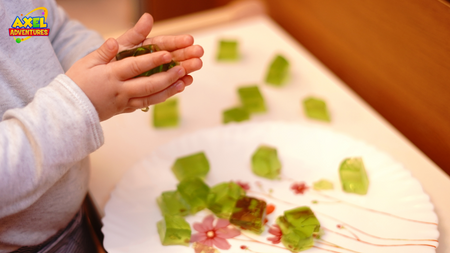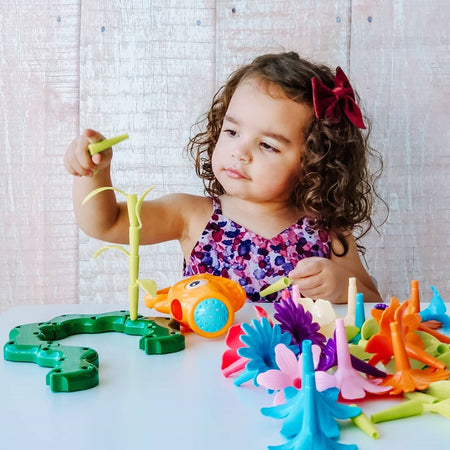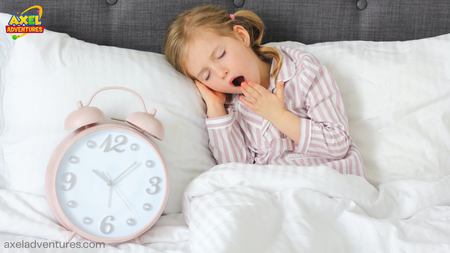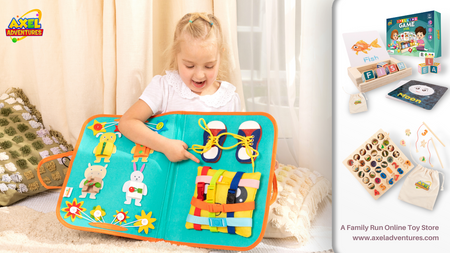
Physical activity is essential for healthy child development. It not only contributes to physical fitness but also has a positive impact on mental and emotional well-being. Regular physical activity can help children build confidence, learn new skills, and develop healthy habits that will last a lifetime.
In this blog post, we will explore the importance of physical activity for child development and the benefits it brings. We will also discuss childhood obesity prevention, the significance of outdoor play, and ways to encourage child physical activities.
The Importance of Physical Activity for Child Development:
Physical activity is critical for child development as it helps children build strong bones and muscles, improves cardiovascular health, and maintains a healthy weight. It also enhances brain development, cognitive function, and academic performance.
Regular physical activity can help children develop self-esteem, social skills, and leadership qualities. It can also help them develop a sense of responsibility, teamwork, and fair play. These skills are not only important for sports and physical activities but also for their academic and personal lives.

Childhood Obesity Prevention:
Childhood obesity is a growing concern worldwide, and physical activity is an effective way to prevent it. Regular physical activity can help children maintain a healthy weight and reduce the risk of obesity-related diseases such as diabetes, heart disease, and stroke.
Encouraging physical activity at an early age can help children establish healthy habits that will last a lifetime. Parents, teachers, and caregivers can promote physical activity by providing opportunities for structured and unstructured play, such as outdoor games, sports, and physical education classes.
Physical activity benefits:
Regular physical activity offers a wide range of benefits for children, both physically and mentally. Some of the physical benefits of physical activity include:
- Strengthening bones and muscles
- Maintaining a healthy weight
- Reducing the risk of developing chronic diseases, such as type 2 diabetes and heart disease
- Improving sleep
In addition to the physical benefits, physical activity also offers numerous mental health benefits for children, such as:
- Reducing the risk of depression and anxiety
- Improving mood and self-esteem
- Improving cognitive function and academic performance.
Fun Ideas to Encourage Child Physical Activities:

Encouraging child physical activities is an essential aspect of ensuring their overall development and wellbeing. However, as a parent or caregiver, it can be challenging to motivate children to be active, especially in the digital age where screens and sedentary activities dominate. One of the most effective ways to encourage physical activity in children is by making it fun and engaging. Here are some fun ideas to get your child moving and to help them develop healthy habits that will last a lifetime.
Make it fun: Children are more likely to engage in physical activities when they are enjoyable. Try to find activities that your child loves, whether it's playing tag, riding bikes, or playing sports. This will make it easier to encourage them to stay active and make physical activity a part of their daily routine.
Lead by example: Children often learn from their parents' behaviors. If you prioritize physical activity in your own life, your child is more likely to do the same. Consider taking family walks or bike rides, or playing catch in the backyard together.

Limit screen time: The more time children spend on screens, the less time they have to be physically active. Consider setting limits on how much time your child can spend watching TV or playing video games, and encourage them to find other ways to occupy their time.
Make it a routine: Encourage your child to make physical activity a part of their daily routine. This could mean playing outside after school, taking a family walk after dinner, or participating in sports teams or classes. By making physical activity a regular part of their life, your child is more likely to continue engaging in it as they grow up.
Provide opportunities: Finally, provide opportunities for your child to be physically active. This could mean enrolling them in sports teams or classes, taking them to the park, or setting up a playdate with friends. By providing opportunities for physical activity, you can help your child develop a love for movement and set them up for a healthy future.
In conclusion, physical activity is essential for the healthy development of children. Not only does it promote physical fitness and reduce the risk of obesity, but it also has a positive impact on mental health, cognitive function, and social skills. Parents, caregivers, and educators all have a role to play in promoting physical activity for children, whether it's through organized sports, outdoor play, or simply encouraging active playtime.
By understanding the connection between physical activity and child development, we can all work together to help our children grow up to be healthy and happy adults. So let's encourage our kids to get up, get moving, and enjoy all the benefits that physical activity has to offer.
Thank you for reading, and let's all work together to help our kids stay active and healthy! Please feel free to contact us or check out our website for more resources and tips.







